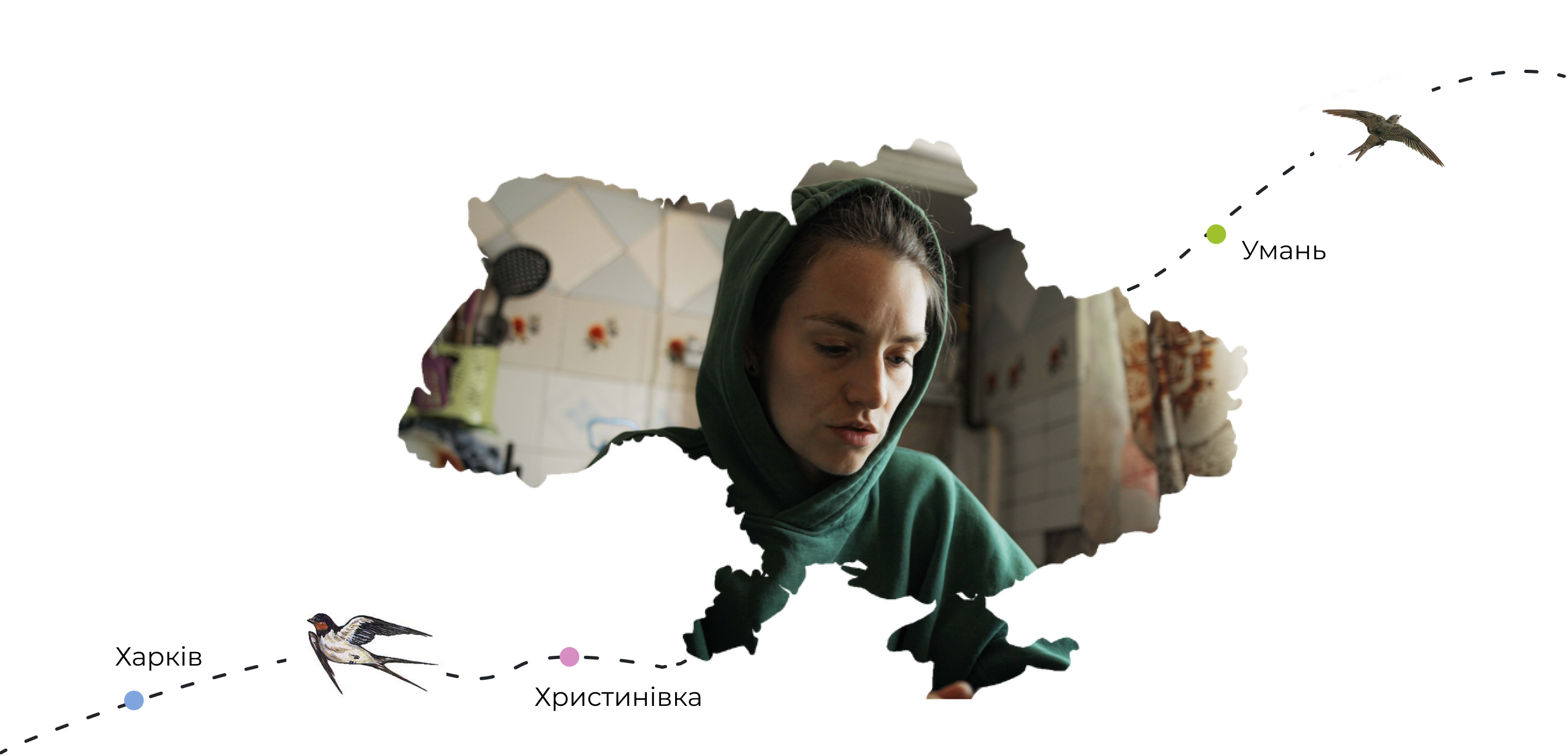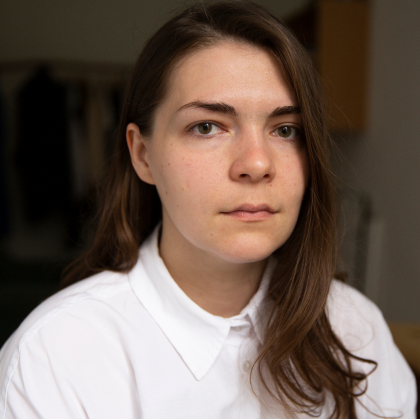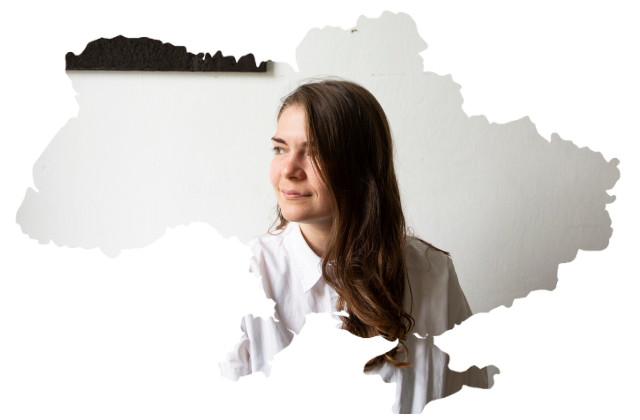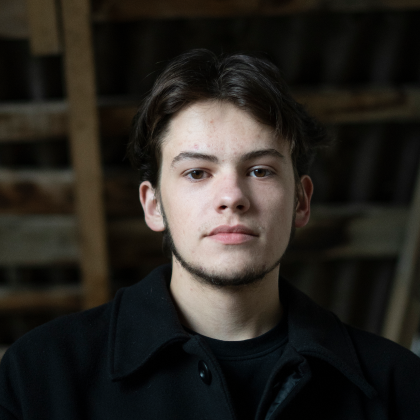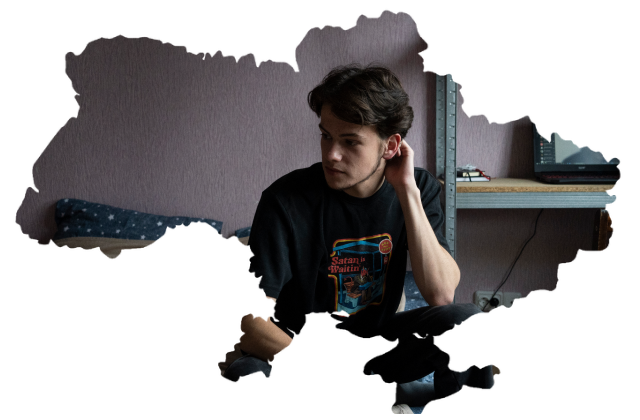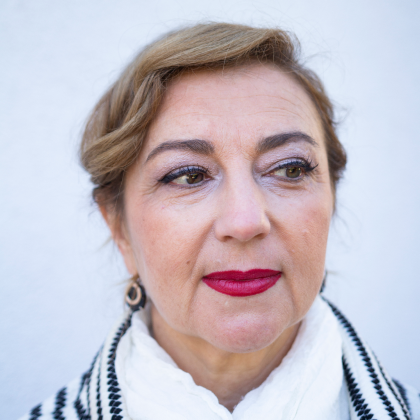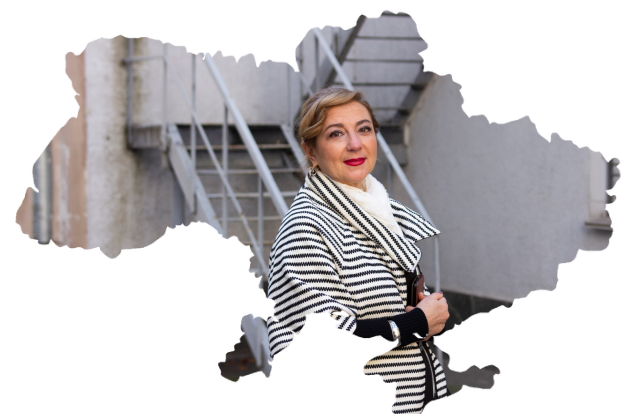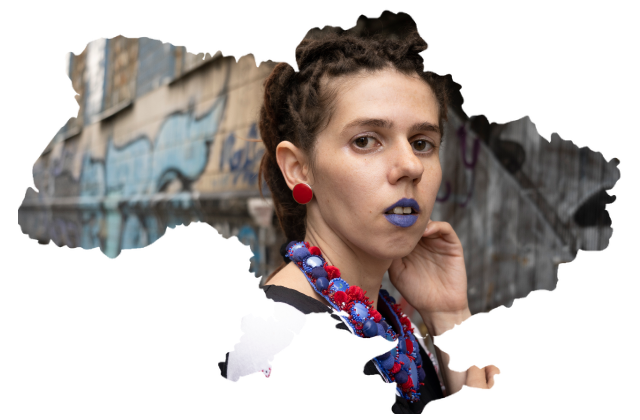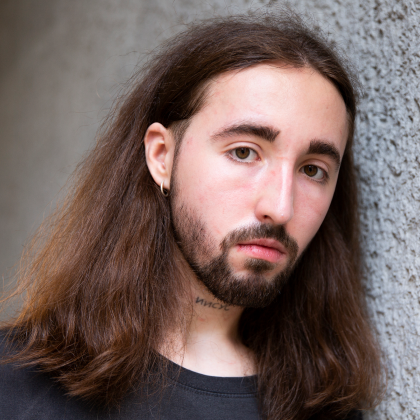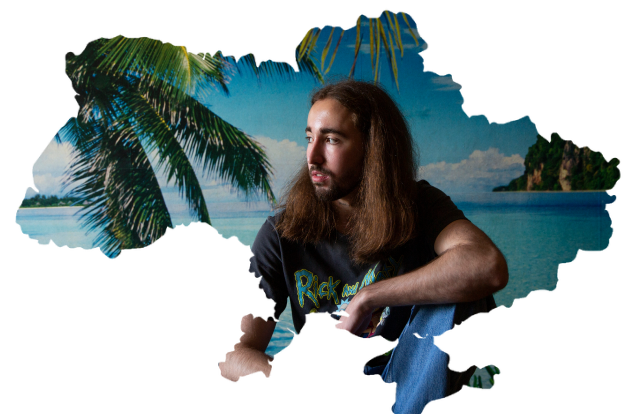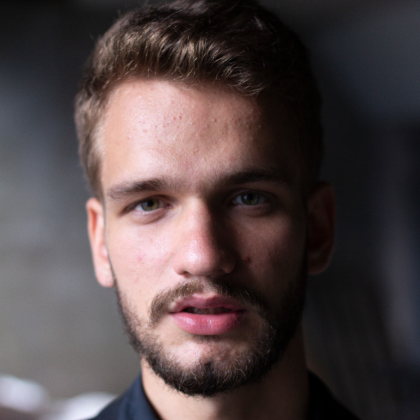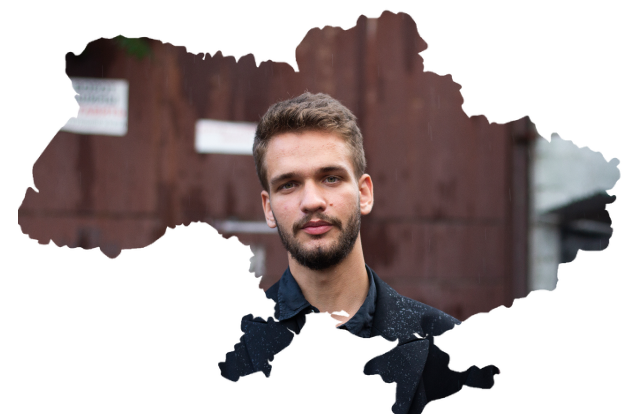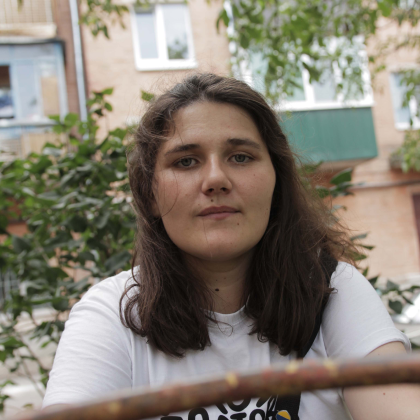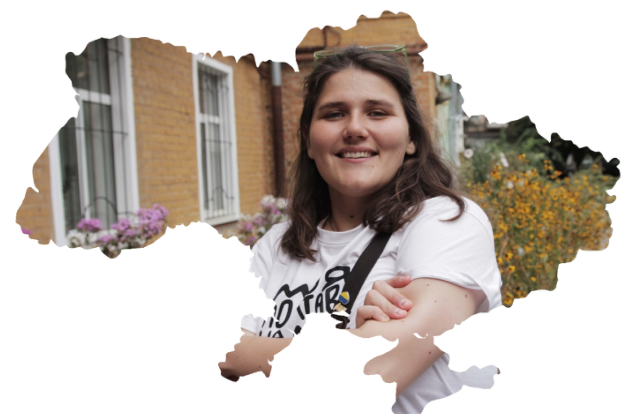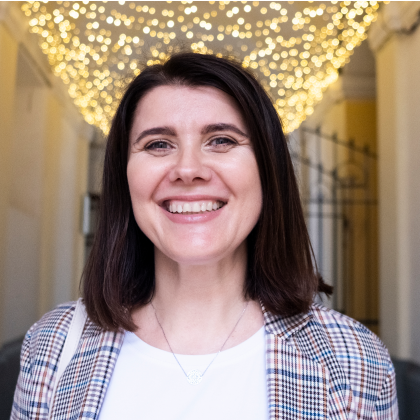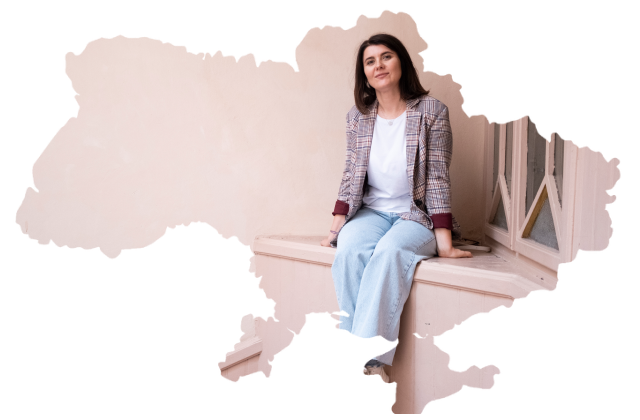Daria Spasova
HR specialist in an IT company, a journalist of the Lyuk online magazine, gastro-enthusiast
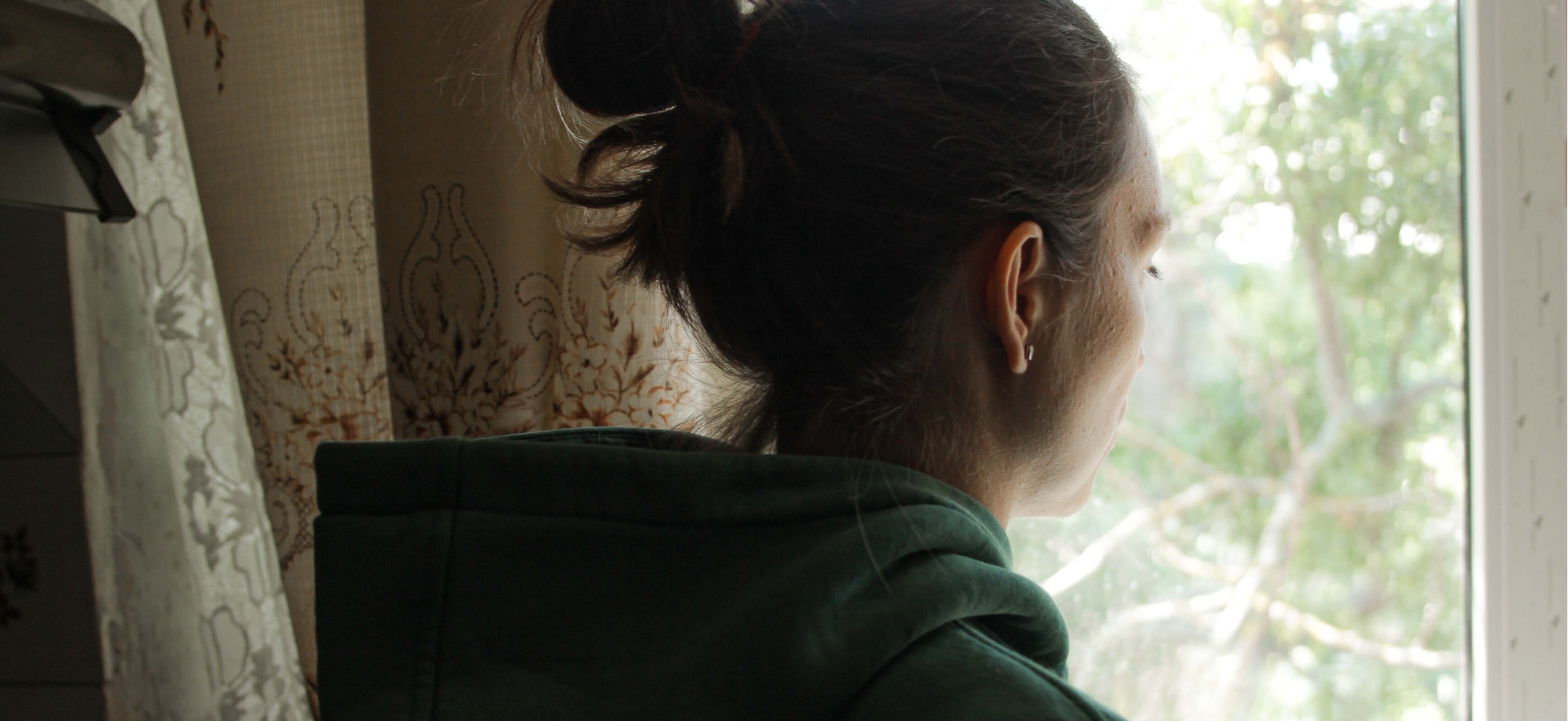
Kharkiv — Khrystynivka — Uman
I have invested most of my life in the topic of food: cooking, exploring products and learning about eating skills and habits. I write about food and interview people from the restaurant industry for the Luk magazine. In other words, I can safely call myself a gastro-enthusiast. It was my passion for food that became crucial support for my family in the early days of the war.
I truly believe that food can bring people and families together. So when the war started, it was very important for me to maintain the feeling of cosiness and comfort within the family: to clean, to exercise, to eat normal meals — not sandwiches and tea, but real warm meals.
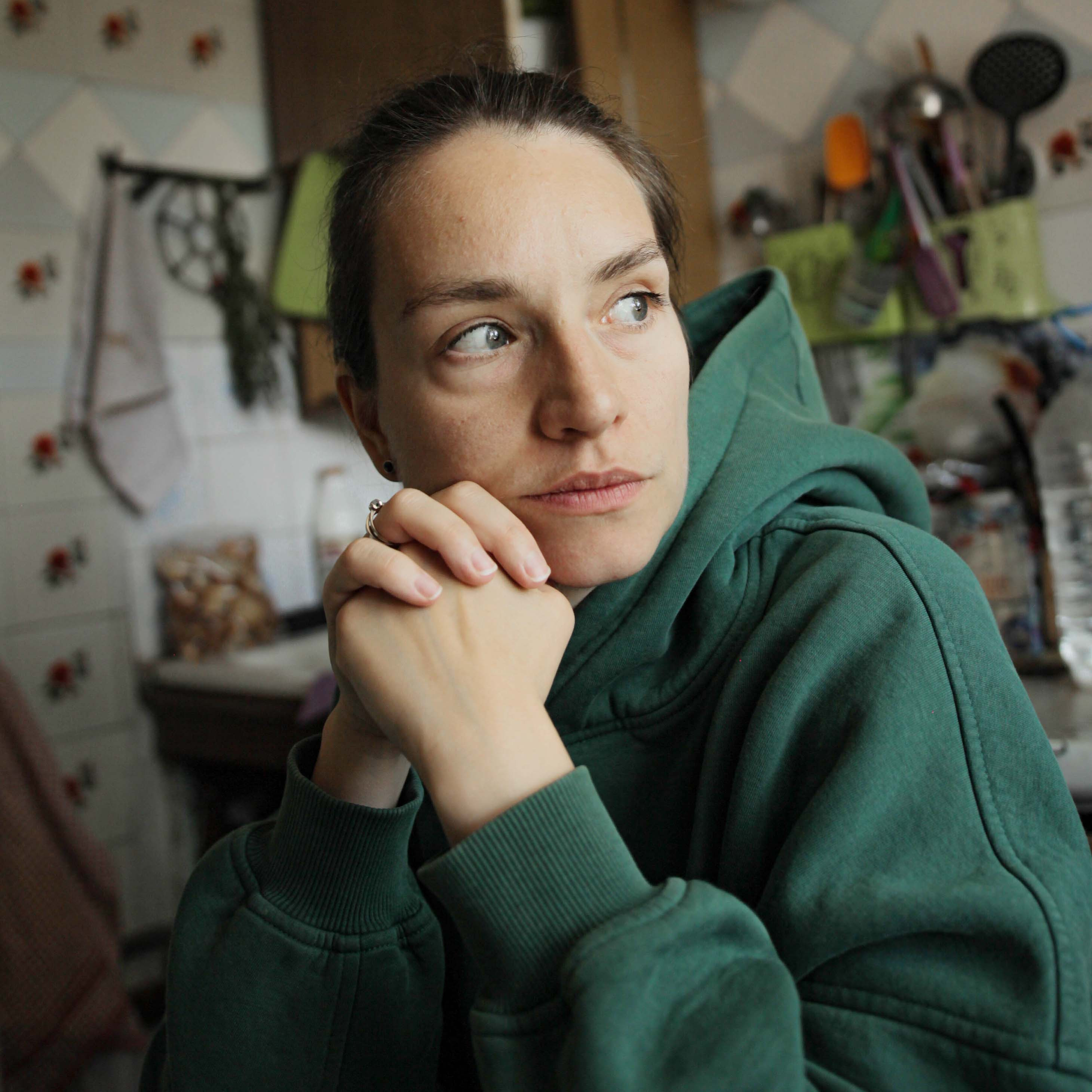
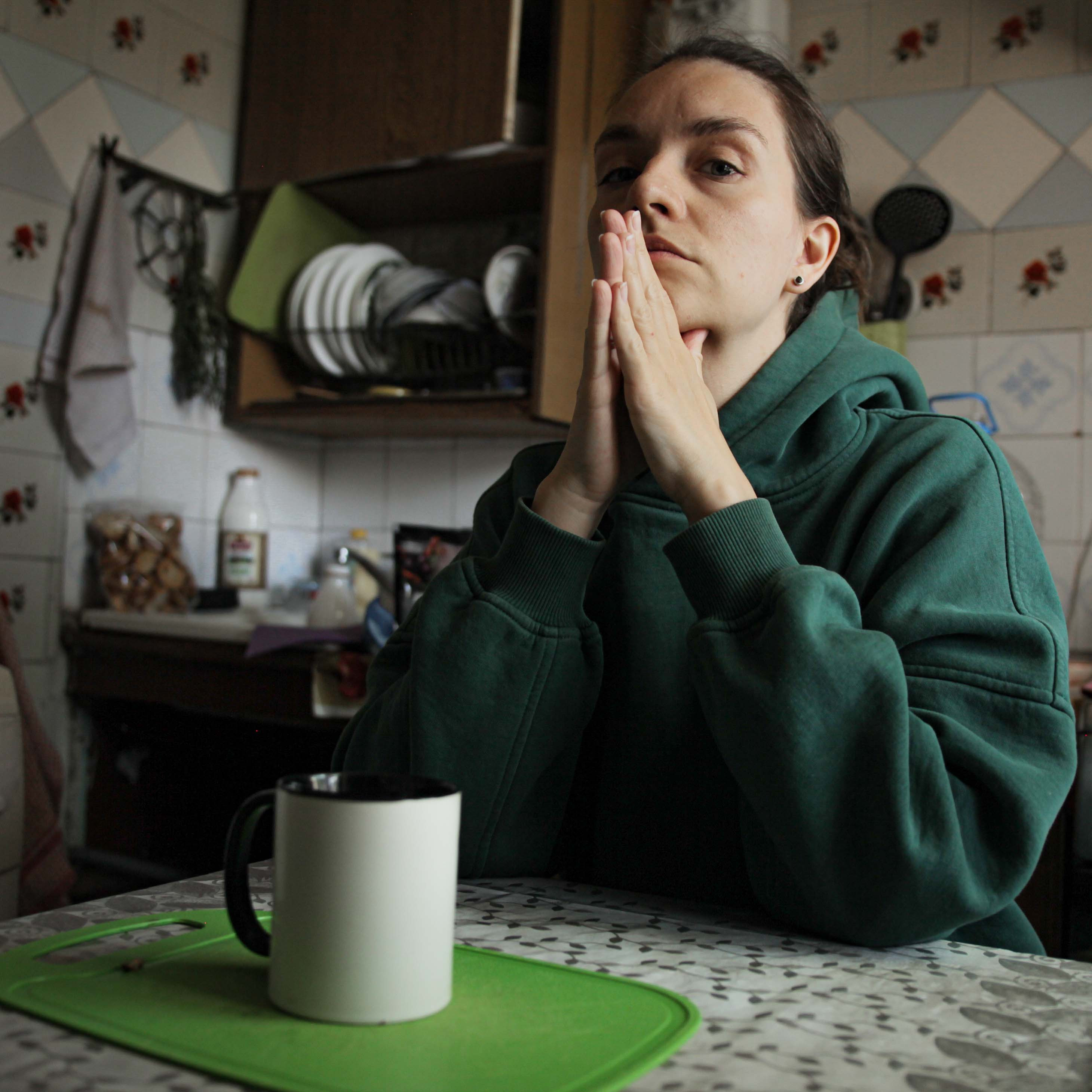
On the first days of the war, when the Russian paratroopers started landing in the Kyiv Oblast, in Hostomel and Vasylkiv, it all reminded me of my family history, because there were so many placenames associated with my relatives. After all, a large part of my family history was exactly about moving places and losing homes. Vasylkiv was the place where my great-grandfather was captured and executed; Glukhiv in the Sumy Oblast was where my father grew up; my grandmother was born in Odesa, and during the occupation in World War II she lived in the Mykolayiv Oblast.
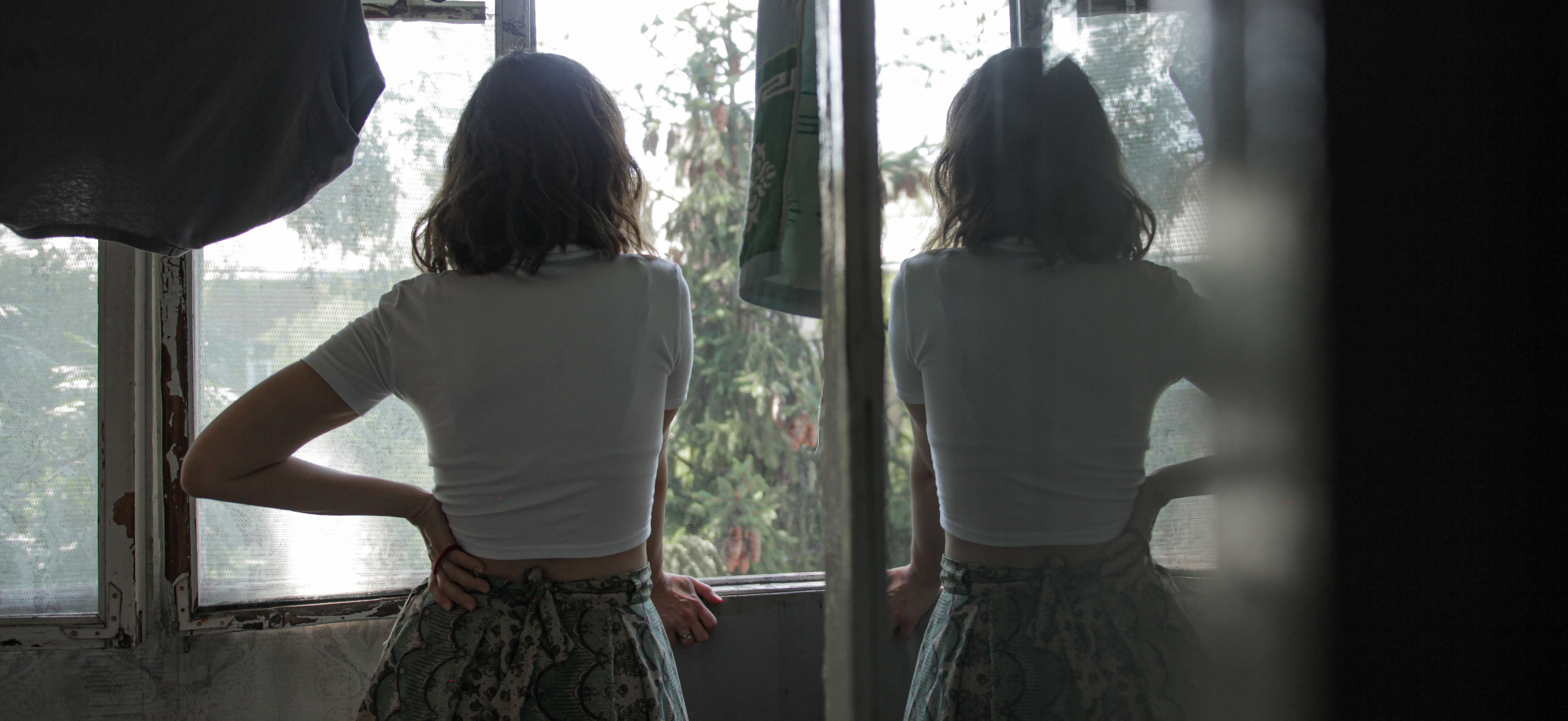
I imagined how many people died for Ukraine's land and how many wars took place just for us to live here. And at that very moment, I had a vision of all those people, who had died for Ukraine over the entire history of this land, rising from their graves and standing beside us, with scythes, hoes, and sabres to defend Ukraine with us. The vision was so powerful that I could feel the connection to the Universe.
So in the first days of the war, I had a euphoric feeling of strong unity. There was a very strong hope that it all would end soon because waging such a war for so many days seemed impossible in the 21st century. That gave me strength. I only started to give up after a week, when the bombs began to hit the city centre very close to our house. There was an increased sense of danger, then there was fatigue, and we saw how stressed our little daughter really was. She had grown up so much in those days.
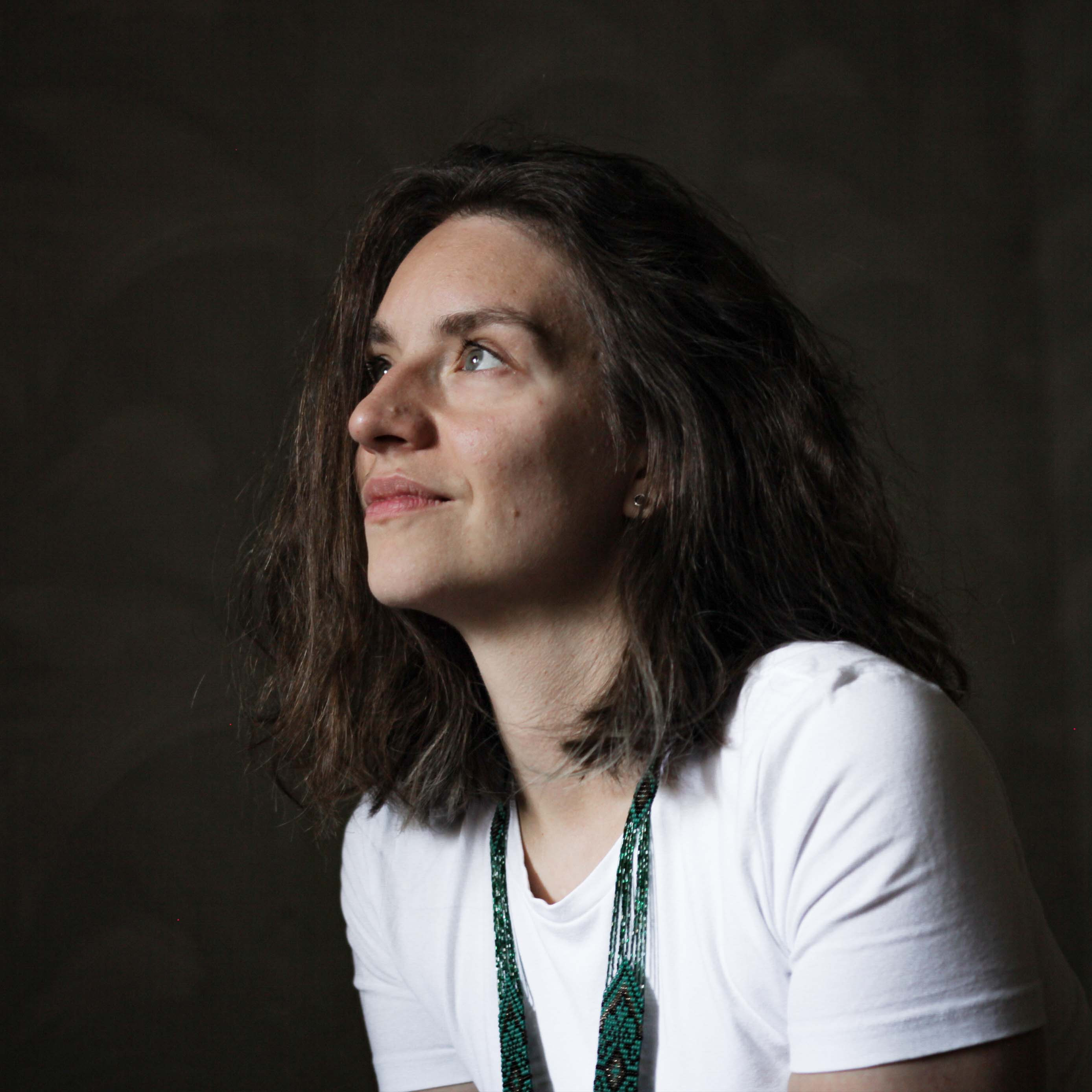
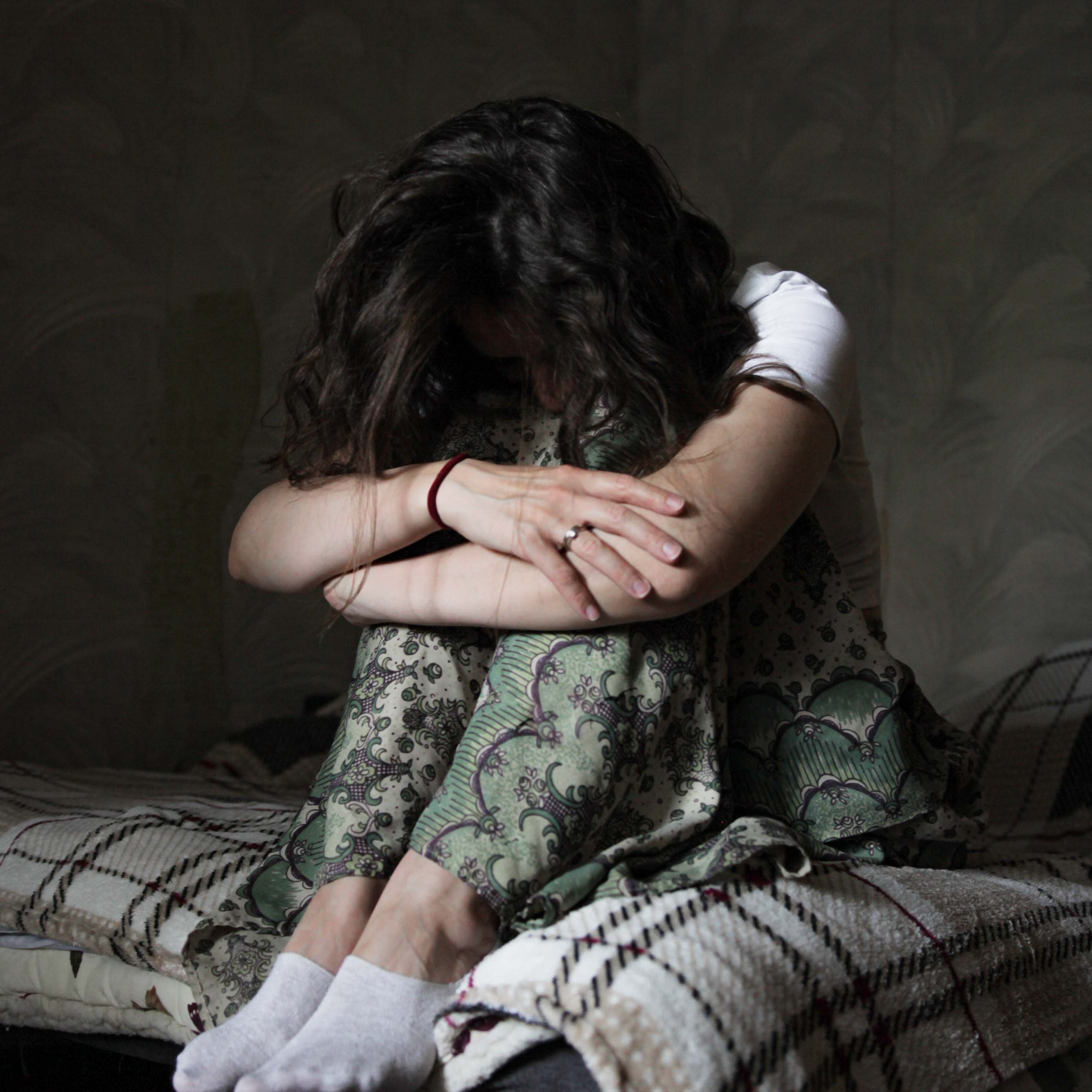
I had already understood that we had to leave, but it was very scary to go because we didn't have a car, and the only option was to go to the train station. But it was the second wave of evacuation, and there were an awful lot of people there, and men were not allowed on the train, while it was very important to me that we leave together. Fortunately, at night, my husband got a text from his niece, saying that she could take us with her. On the morning of March 3, we left Kharkiv. The next day missiles hit the Palace of Labor, the City Hall and the SSU building some 500-700 meters away from our house, and that was the last straw.
The spring before, when there was a wave of panic over the military drills on the Russian-Belarus-Ukrainian border, the only way I could calm myself down was by making a list of things I would take with me that would give me a sense of home. Of course, when the war started, I didn't take everything I wanted, just the essentials. Still, we managed to take our daughter's favourite toys, books, enough clothes to change her into whenever she wanted, and the silicone bunny she got as a birthday gift, I mean the most important objects in her daily routine.
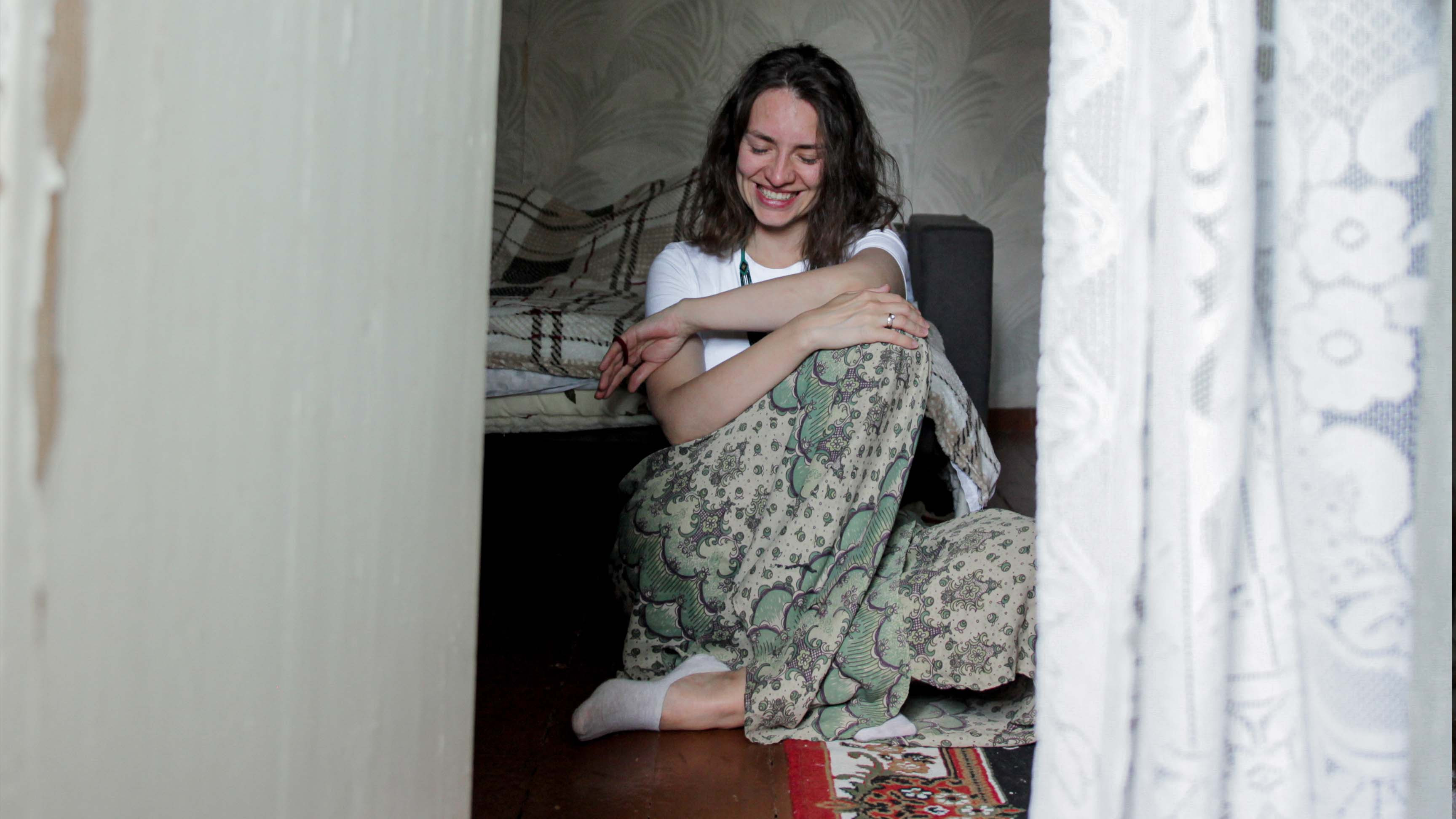
We had no plan of where exactly to go, we just headed west closer to the European border. The planning time frame was one day or even a few hours. It felt as if somewhere behind me, somewhere behind the car there was Godzilla, who was about to crush us or pull our car out of the line at the checkpoint. It was only when we got out of the long traffic jams on the Dnipro highway and speeded up, that I started to cry for the first time during the war. It was like a pent-up feeling of death that wouldn't let me go for the next couple of days.
We met very nice people everywhere along the way. At a children's camp just along the highway where we stopped to stroll around for a while, we offered our help in the kitchen, because people kept arriving all the time. They told us, "Please, relax and go sit on the bench, look at the stars in the sky. Your help is not needed right now. Just rest, you've been through enough."
We drove in a very large group: my parents' car, our neighbours' car, and the car of the friends of the people who took us with them. Someone got a phone call and was told that there was a large house in Khrystynivka, a town in the Uman district of the Cherkasy Oblast. That was where we went. On our first days there, we received a very generous welcome and care from our hosts, who brought us food, blankets and clothes.
Still, to me the first weeks were hard. It had a lot to do with losing my role as a wife because we found ourselves living together with our parents with no personal space. There was no opportunity to spend time as a couple because my daughter wouldn't let me go for the first few weeks. Only with time did everyone adjust, find common and personal rhythms, and it became a little easier.
By the end of the first month in Khrystynivka, I bought myself a cup. That was the first step in accepting the situation: it was unclear when we were going to return home. Around the same time, my father-in-law sent us a suitcase of things. It was almost all about clothes, but I asked him to send me a small wooden knife, a gift from a girl in Odessa — it was essential to me in my daily routine.
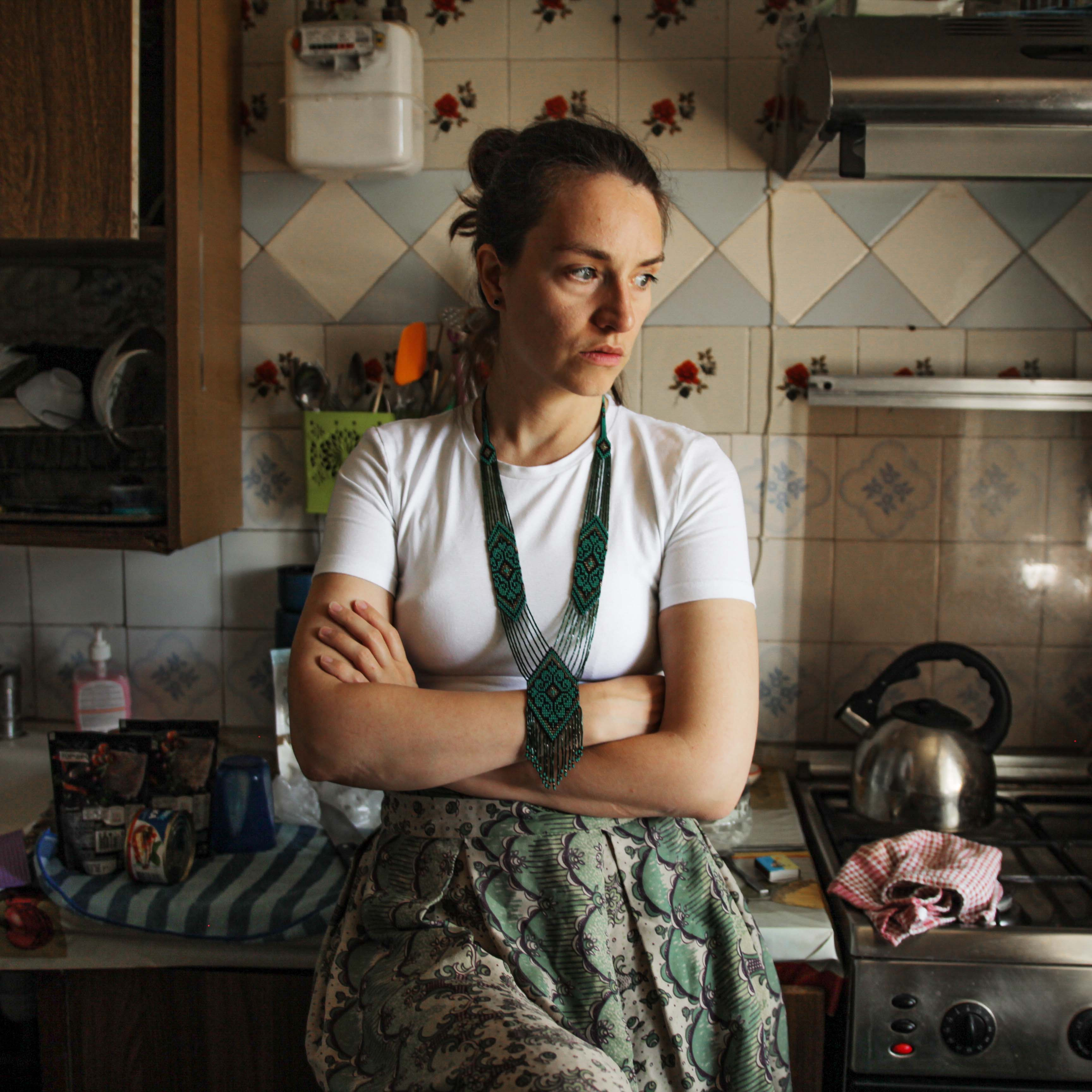
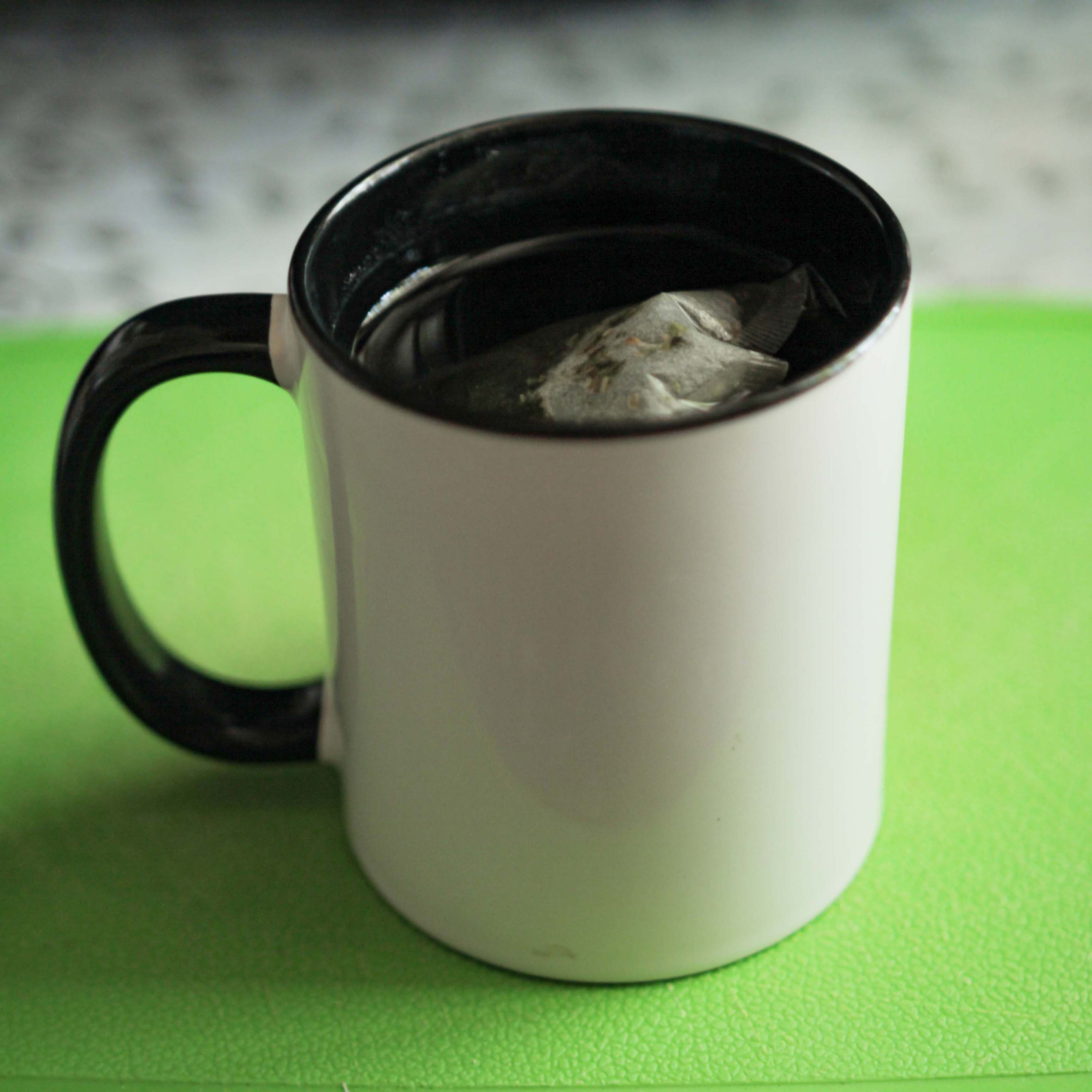
At the end of March, the third wave of displaced people came, and we were asked to leave since the owners were going to host their relatives. Thanks to a Facebook ad, we found an apartment in Uman, where we still live today. When we rented a separate apartment and moved away from the parents, I got a greater sense that the three of us were a family. I also had some important things like kitchen appliances sent to me from home.
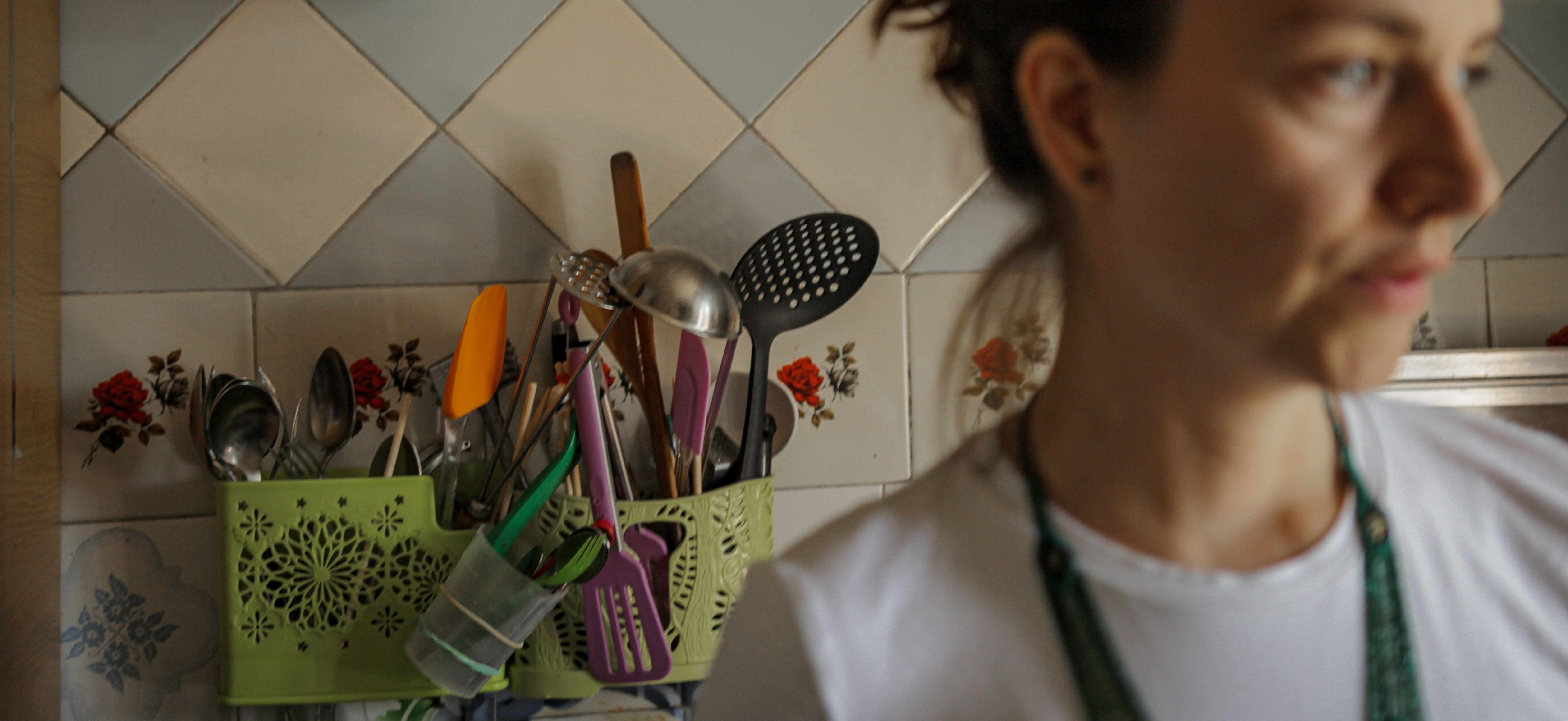
Of course, more than anything else I want to go to Kharkiv. But it's much easier to accept the fact that we have to stay here for a while, knowing that we can enjoy our daily coffee, bake a pie or make ourselves a big pot of stew and freeze half of it. Going back to your pre-war habits is vital, it provides a lot of support.
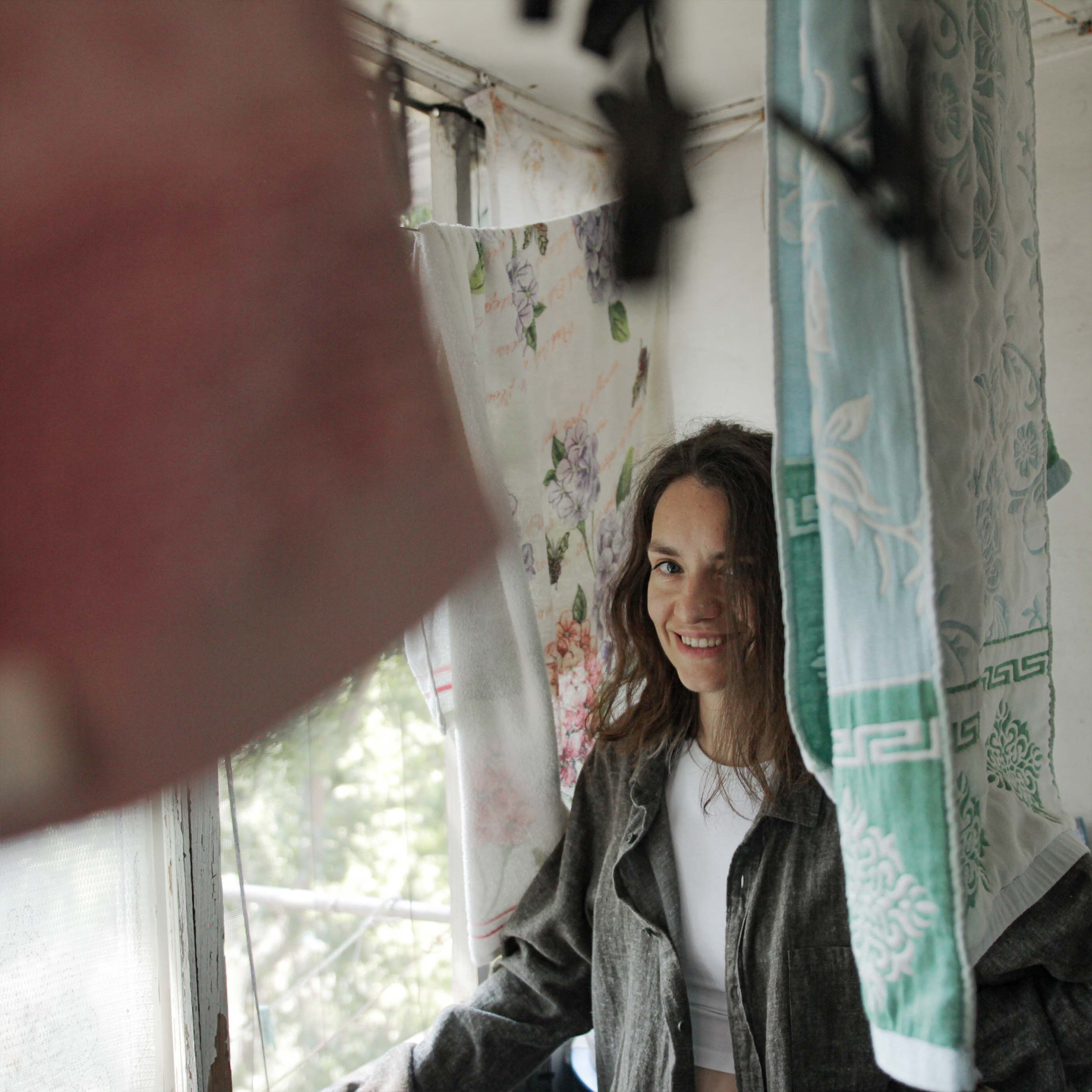
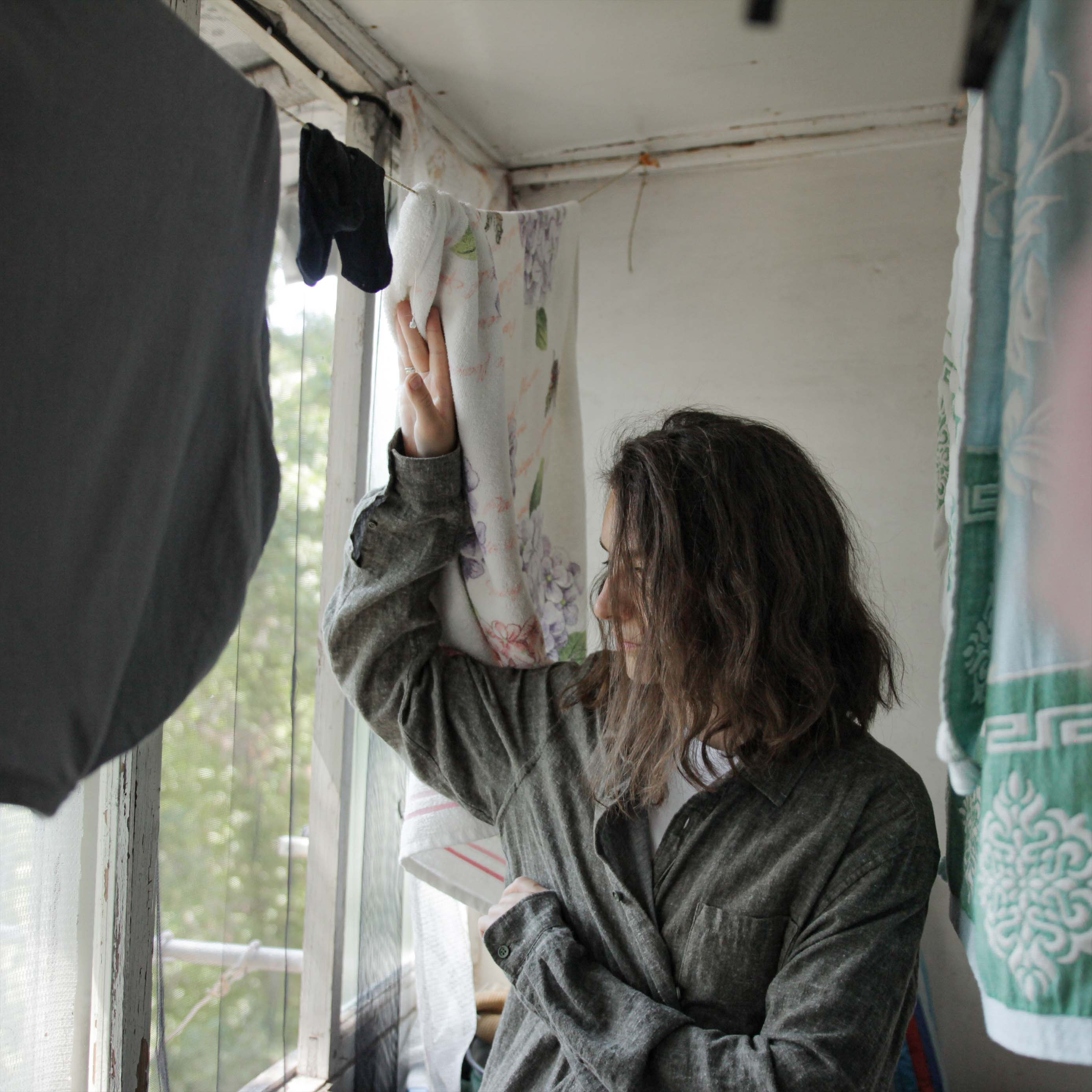
Recorded by Alyona Vorobiova
Translated by Volha Mikhnovich
Photography: Vladislav Yevdokymov
